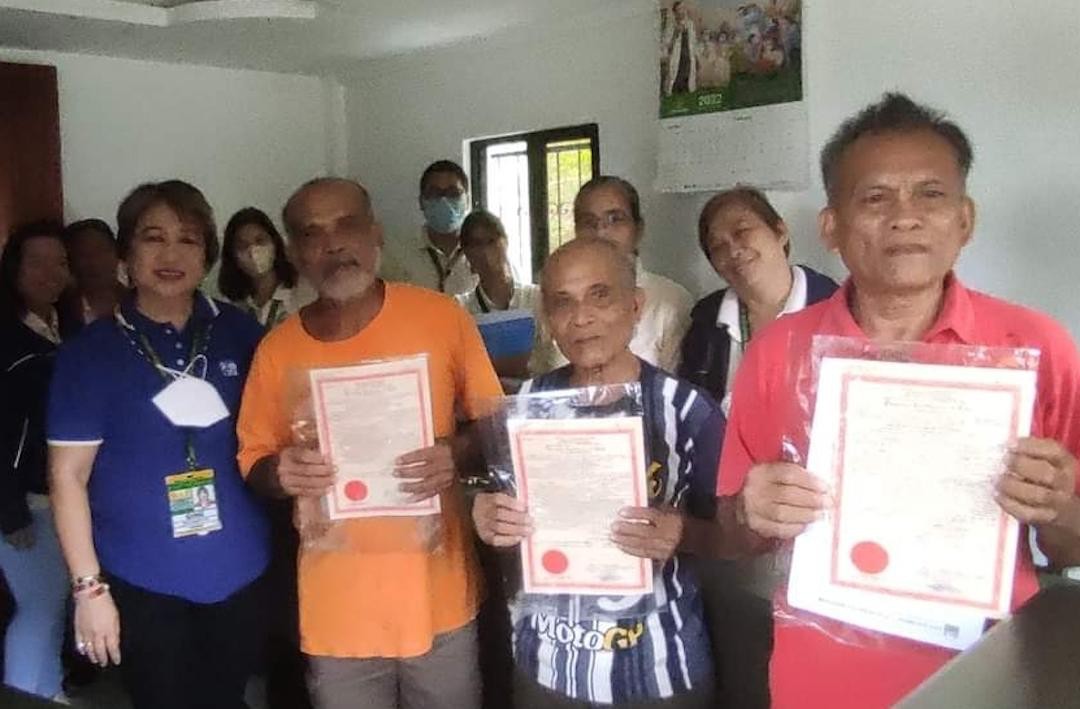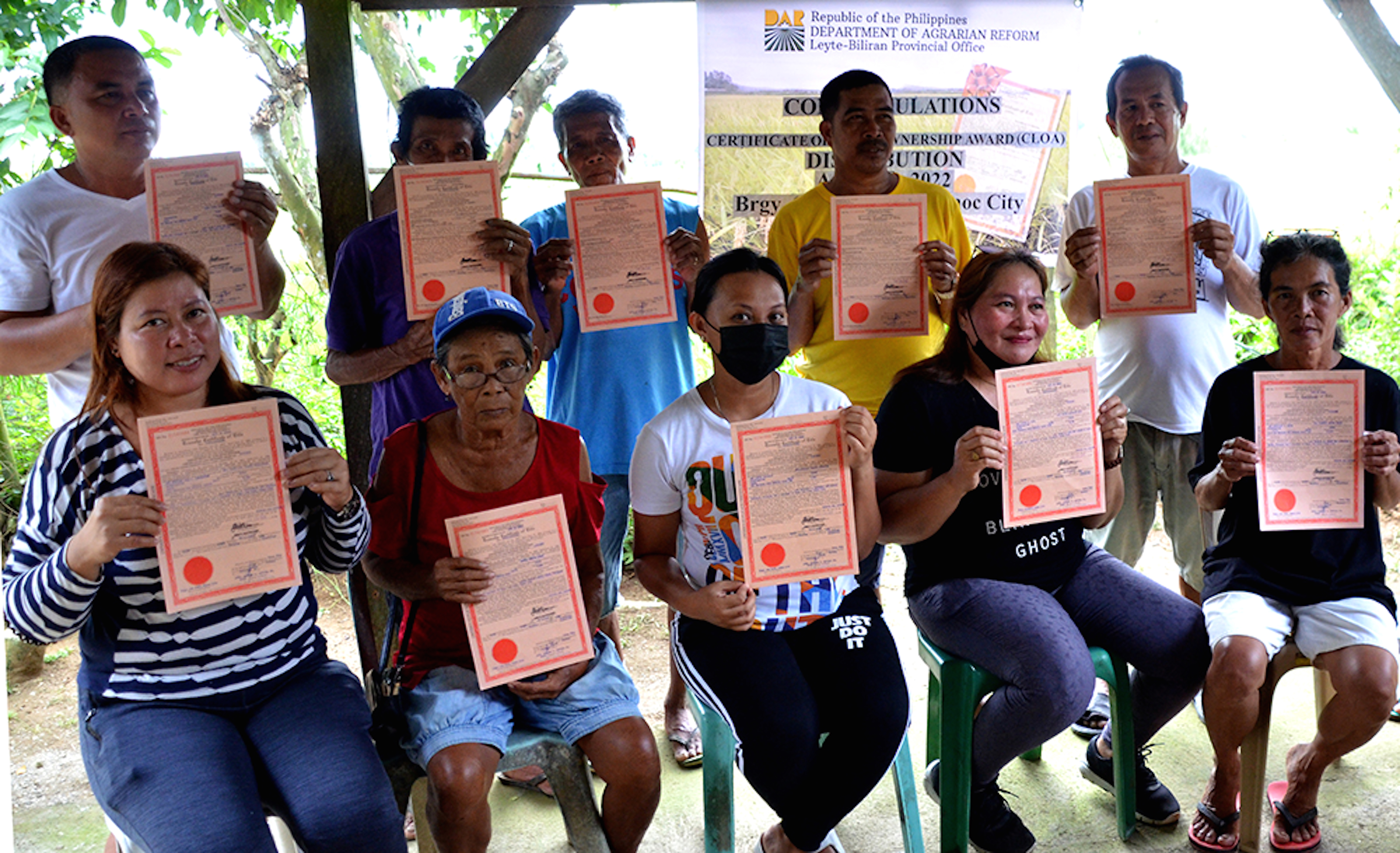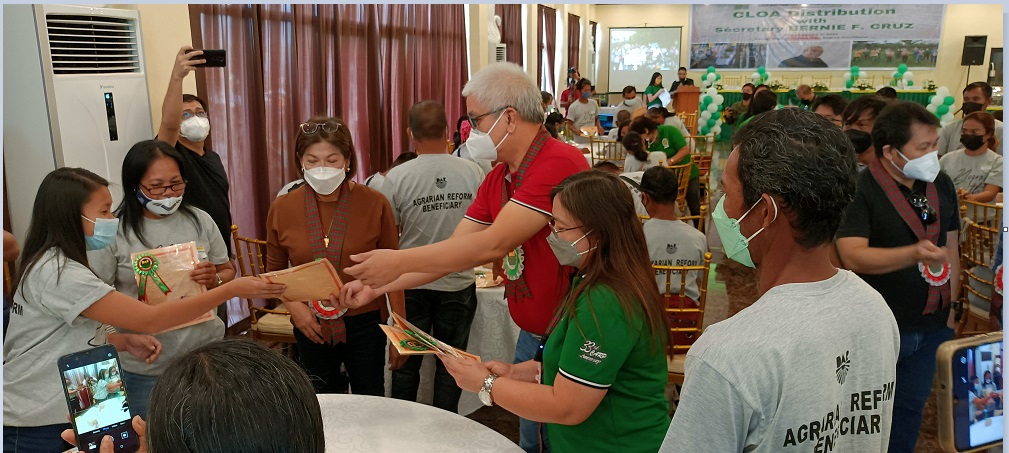QUEZON CITY -- Agrarian Reform Secretary Conrado Estrella III reported that the Department of Agrarian Reform (DAR) has already subdivided 437,922 hectares of agricultural lands as of December 31, 2022, which is scheduled to be distributed to the same number of qualified farmer-beneficiaries under the Support to Parcelization of Lands for Individual Titling (SPLIT) project.
Estrella said the SPLIT project seeks to subdivide the previously distributed 146,860 Collective Certificates of Land Ownership Award (CCLOAs) and turn them into individual land titles.
The P24.62-billion project, funded by the World Bank and the government of the Philippines, aims to improve land tenure security and stabilize the property rights of some 1.14 million agrarian reform beneficiaries (ARBs) covering 1.36 million hectares of land nationwide.
SPLIT project is one of the priority programs of President Ferdinand R. Marcos Jr. to free the farmers from the bondage of the soil.
The Secretary noted that field implementers had gone through the difficult process of subdividing the landholdings into individual lots.
These include the CCLOA inventory and data gathering, ARB and landholding field validation, the conduct of segregation and subdivision surveys, which will lead to the generation and registration of individual CLOAs, and finally the distribution, and installation of qualified ARBs.
“Majority of the CCLOAs distributed during the 1990s have already encountered a lot of changes, in so far as the actual tillers and owners of the farmlands, and the current size of the landholdings,” Estrella stressed.
Engr. Joey Sumatra, DAR Assistant Secretary for Field Operations and SPLIT project national director said about 30 percent of the ARBs listed in CCLOAs are no longer around in the area where the landholdings are located, either by abandonment, death, or their rights already sold to other individuals.
“We have to undertake field validation process through the disqualification and reallocation proceedings to determine the qualified beneficiaries,” Sumatra said.
Sumatra also cited the need to settle several issues, such as overlapping issues between Comprehensive Agrarian Reform Program (CARP)-covered farmlands and ancestral lands of indigenous communities, land survey to determine portions of landholdings already allocated for non-agricultural uses, and the process of generating electronic titles, among others.
Sumatra said that there is a need to segregate portions of landholdings allocated for non-agricultural uses, such as road networks and basic social facilities before determining the metes and bounds of each subdivided farm lot.
Sumatra explained that consultations and dialogues also took place between and among concerned local governments, the National Commission for Indigenous Peoples, the Land Registration Authority, and the affected parties – the ARBs and the tribal communities, among others.
The SPLIT national project director expressed confidence that they would be able to deliver the task at hand in due time. (DAR)





